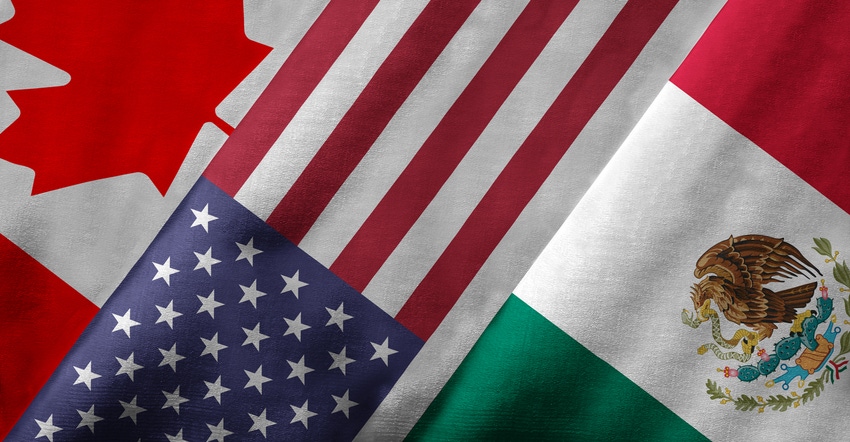
If you talk to Randy Kron about national agricultural issues, trade comes up quickly. You probably think he’s talking about nailing down a trade agreement with China. While that’s important, he says, it’s not his top priority.
“We must get the United States, Mexico and Canada trade agreement approved,” says Kron, president of Indiana Farm Bureau Inc. “We’ve demonstrated we can negotiate trade deals by putting this one together. Now it’s extremely important to show the rest of the world that we can complete trade deals.”
The actual agreement, hammered out by the Trump administration and leaders of Canada and Mexico, was reached in late 2018. In fact, Randy Kron was sitting in the seat of his combine, harvesting soybeans, when Indiana Prairie Farmer asked him about it last fall. The agreement updates the North American Free Trade Agreement, in effect for more than two decades, and holds several pluses for U.S. agriculture, Kron believes.
Well-placed sources in Washington, D.C., tell Kron they believe Congress will pass the agreement, but it’s already somewhat of a political football. If allowed to move closer to the 2020 political year, it’s likely to become even more shrouded in politics, Kron notes. He’s still optimistic Congress will approve it this year.
Other national issues
The trade situation with China is complex, Kron says. Bob White, national affairs specialist for IBF, agrees. Even if an agreement were reached and tariffs went away, it’s uncertain how much agricultural trade would resume with China.
A large chunk of the demand for soybean protein disappeared in China after many hogs were wiped out by African swine fever. Other reports indicate that even for remaining hogs, Chinese producers have significantly cut back protein in rations.
“There’s also the reality that once a country begins buying from other suppliers — in this case, places like Brazil and Argentina — it’s often difficult to get them to trust you as their supplier again after an episode like this one,” Kron says.
White says there may be more hope for a trade deal with Japan. He adds that reaching and ratifying an agreement with Japan would be important since the country is also a major trading partner for the U.S.
“There’s just a whole lot of uncertainty when it comes to trade right now,” White observes. “We really need the deal with Canada and Mexico to be approved as a starting point.”
Trade isn’t the only national issue that IFB leaders are monitoring, however. “There are at least two bills in Congress related to the immigrant agricultural farmworkers program, known as H-2A,” White says. “The program is ongoing, but these bills would improve how it works and streamline the process. Producers who try to use the H-2A program for the first time to find laborers report it’s a difficult process and takes much longer than it should to line up workers.”
The H-2A program is designed to match up documented immigrant workers who have green cards with producers who need labor. While it’s difficult to totally separate it from the immigration quagmire, it’s really a different issue, White says.
“We’re also monitoring programs that are part of the farm bill passed in 2018, too,” White adds. “Some of the programs, especially those related to conservation, haven’t been fully implemented yet.”
About the Author(s)
You May Also Like




